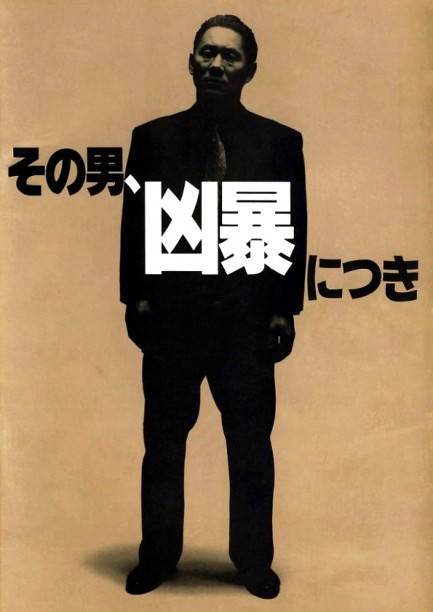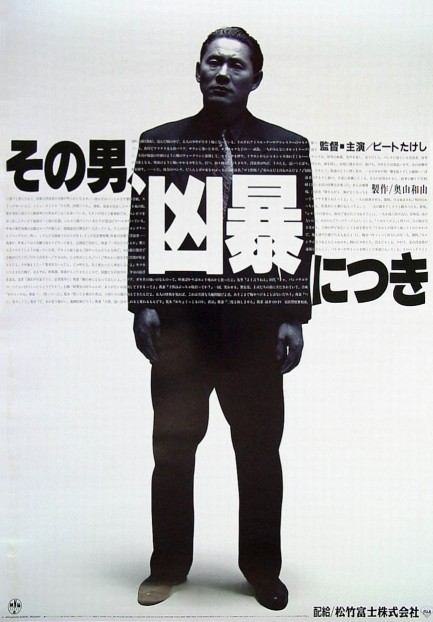| Modern Pulp | Mar 22 2010 |


The above poster in Japanese was made for a 1993 movie titled Sonatine. We saw it a few years ago and were simply stunned by it. It’s a gangster drama that derives inspiration from the same Hong Kong crime films that inspired Quentin Tarantino. We’re talking about classics like Ringo Lam’s City on Fire and John Woo’s A Better Tomorrow. But the difference is Sonatine is doggedly introspective. There’s plenty of violence, but the overall mood is quiet and minimal, like the poster.
For example, Sonatine features a long interlude during which hired gun Aniki Murakawa—played by Takeshi “Beat” Kitano—enjoys some idyllic rest and recreation at the beach with his criminal cohorts. This section, wedged between the bookends of the film’s main story, was our favorite part by far, because it humanizes Murakawa, shows him to be a man capable of laughter, even dreams. But it also highlights his insatiable appetite for self-destruction, and the utter emptiness of his soul.
In the hands of a lesser director these sequences could have been nonsensical, but Kitano, handling the chores himself, constructs the pieces perfectly and you come away with real feeling for his anti-hero Murakawa. When the problems Murakawa avoided finally come to roost, we can’t help but cheer for him to win. But nothing is as simple as it seems in Sonatine, and nothing about it is predictable. Maybe that’s why it created a sensation at the 1993 Cannes Film Festival and make Kitano an international icon. Watch and you’ll see why.




































































